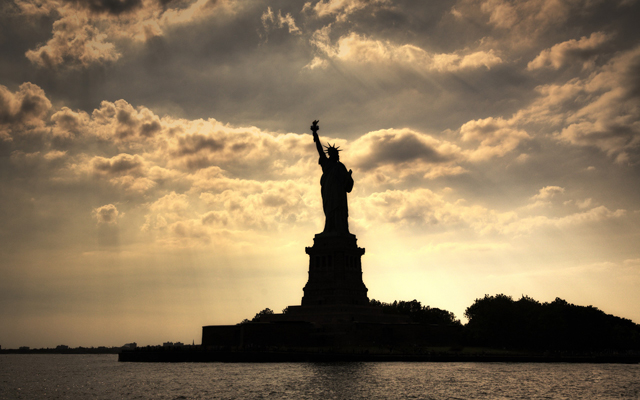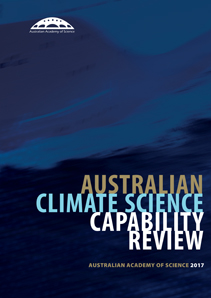We need to stand up for civil society. A good place to begin is our meagre public science budget.

“Give me your tired, your poor…” PHOTO TravelBLAT.com
What is civilisation? What does it mean to be civilised? That thought came to mind after watching video of yet another heated exchange in Washington last week.
In the White House video, Donald Trump adviser Stephen Miller defended Trump’s notion that all prospective immigrants must understand English, disputing a reporter’s claim that it was against the spirit of lines inscribed at the base of the Statue of Liberty.
I’m sure you’ve heard them: “Give me your tired, your poor, / Your huddled masses yearning to breathe free, / The wretched refuse of your teeming shore. / Send these, the homeless, tempest-tost to me, / I lift my lamp beside the golden door!”
The words are the ending to a sonnet about the statue written in 1883 by a Jewish New Yorker, Emma Lazarus, to help raise money to install it. I know them well because an immigrant named Irving Berlin set them to music, and as a child I often heard them in our home, on a vinyl record.
Americans have taken the Lazarus words to heart, so that they’re now part of national folklore. Miller sought to diminish their connection to the monument, which wasn’t surprising. Their message is the direct opposite of what his boss has been saying about immigration.
To me, the lines may be a bit dewy-eyed but the sentiment is irreproachable. It expresses a nation’s readiness to give shelter and succour to strangers, a declaration that fear of outsiders will not be allowed to override universal values of hospitality and kindness.
This attitude is at the heart of civilised life: a reaching out to others, expressed as good immigration policy, or neighbourliness, or working to build a community or alliance or enterprise.
Secrets are the currency of the corporate competition that fuels Trump. Civilisation is the opposite. It means being open, outgoing and curious about the world around us. So too does one of the pillars of civilisation, science for the public good.
Science and civilisation feed off each other. Just as science has brought us longer, richer, more informed lives, so the concentrated wealth and energy of numerous large, connected communities make big science possible, such as study of the universe and the Earth system.
And that has created a rift in this once-cosy relationship. The economy is a hungry beast which has enjoyed a huge injection of calories since World War II. But the science that has fed it now says it must go on a low-calorie diet, and the beast doesn’t like it.
We have heard ugly murmurings about climate scientists sucking up precious national resources to keep them in pocket while the resources of our land and seas are “wasted”, left unexploited.
This is pure, self-serving rubbish. As a proportion of the global economy, resources going into climate research are miniscule, not even a pimple on the beast’s bottom.
Within the confines of our own federal budget, research funding as a proportion of GDP has barely moved from the historic lows of 2015-16, and where there is any boost the main beneficiary has been medical science. Less than 1 per cent of Australian public scientists study climate (see page 8 of the AAS review).
 Last week our most respected scientific institution, the Australian Academy of Science, released a review of national climate research. It found that while our 419 climate scientists do well in some fields, notably extreme weather events, they are under-resourced in others, such as modelling.
Last week our most respected scientific institution, the Australian Academy of Science, released a review of national climate research. It found that while our 419 climate scientists do well in some fields, notably extreme weather events, they are under-resourced in others, such as modelling.
Australia is one of the developed countries most exposed to damage from a heating world. At the same time, as a leading Southern Hemisphere economy we are uniquely placed to lead research into our southern half of the world, the engine room of the global climate.
But the review reveals us with a shortfall of around 30 research positions and falling behind other countries. Given this, it sounds like pure folly not to continue funding Hobart’s Antarctic Climate and Ecosystems Cooperative Research Centre, due to close in 2019.
If we don’t maintain a high modelling capability, key parts of our unique regional climate are more likely to be poorly-represented in global climate models. For a country like ours, on our own in the Southern Hemisphere with unique climate challenges, that is definitely not a nice prospect.
Led by a great Australian scientist, oceanographer Trevor McDougall, the Academy review team is a roll-call of living legends of Australian climate research: Julie Arblaster, Helen Cleugh, David Griggs, Rod Keenan, Neville Nicholls and Graeme Pearman.
The 18-month review involved deep consultation with climate scientists and all relevant agencies and research bodies. Environment minister Josh Frydenberg said that he valued that effort, but suggested that what we have is enough. He’ll have to do better than that.
The review is thoroughly expert, objective, measured and exhaustive, and trying to improve on it, or reshaping its findings to suit a political agenda, would be a waste of time. We need the government to accept what it’s being told and start filling the gaps.
Being civilised means valuing public science, like the arts, for its contribution to humanity. Like the arts, it keeps being treated like a flower in a buttonhole, something to be taken up or discarded at will, when it’s actually what helps hold up the trousers. Without its support, we’re all undone.
A footnote: the Statue of Liberty was given by France to a United States still recovering from civil war – a message of hope from the Old World to the New. Today, Lazarus’s words and the mighty torch-bearer who inspired them carry a power that knows no national borders.
